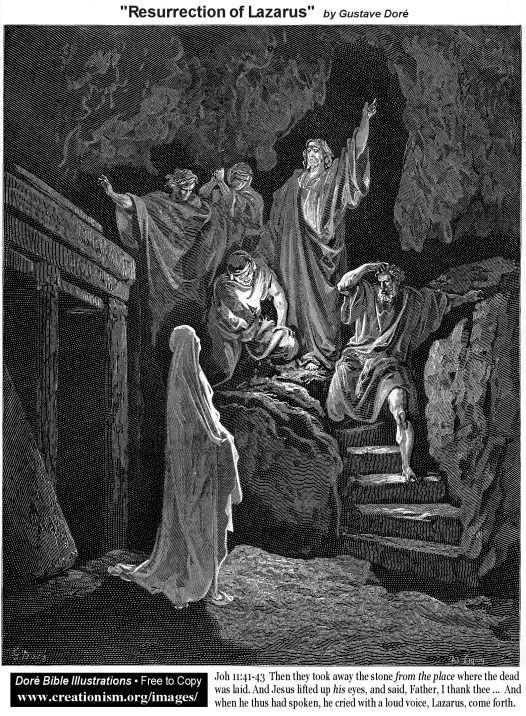
At about 8 minutes or so, the moderator, Dr. Denny Burk, asks Dr. Schreiner about his change in views from A-Millennialism to Pre-Millennialism. He then asks Dr. Schreiner how he would explain Revelation 20. Dr. Schreiner offers a brief and helpful explanation of the A-Millennialist viewpoint and then gives one of the major reasons for his change in views.
The key in the text for many on both sides of the debate is whether or not the word for resurrection in the Greek is ever used for spiritual resurrection. As Dr. Schreiner points out, it is only in Revelation 20 that A-Millennialists believe "anastasis" (resurrection) is spiritual when it it refers to the first resurrection. Then in the same context the dead are spoken of as coming to life. Every text sees this as bodily. Dr. Schreiner explains (listen here),
Usually the term resurrection in Scripture, in fact always, except in Revelation 20, anastasis, that word for resurrection, is used of physical resurrection. So you have to argue if you're an A-Millennialist that it is being used differently in Revelation 20.So here we have an example of where a word is defined differently by A-Millennialists than everywhere else in the New Testament. For everywhere else the word is defined as bodily resurrection. Only here and only by non-PreMillennialists is the term defined spiritually.
Here is first a spiritual resurrection, to be followed by an eschatological bodily resurrection. Nonmillennarian interpreters argue that Revelation 20 should be interpreted in a way analogous to John.Ladd then goes on to demonstrate that the differences between John 5 and Revelation 20 are too significant to show a real parallel. He argues,
In Revelation 20 there is no such contextual clue for a similar variation of interpretation. The language of the passage is quite clear and unambiguous. There is neither necessity nor contextual possibility to interpret either ezesan [they came to life in Rev 20:4-5] spiritually in order to introduce meaning to the passage. At the beginning of the thousand years some of the dead come to life; at the conclusion, the rest of the dead come to life. There is no evident play upon words here. The passage makes perfectly good sense when interpreted literally.Again, this is a powerful argument. For many years I held this view simply because it seemed to be the straightforward interpretation of the text. But that is just it. I was assuming my hermeneutic as justified, and I was assuming the nature of the text as justified without actually demonstrating that my position was justified. For instance, is Revelation 19 and 20 a continuous prophecy or is John backing up again and retelling the story? Should we not acknowledge that Revelation as Apocalyptic literature and not a mere historical novel?
In John chapter 5 Jesus uses the term "dead" first spiritually then physically. To argue that Revelation 20 does not give such clear indications that the first resurrection is spiritual while the second is physical is to force upon John's apocalyptic literature a style of writing that is not apocalyptic.
The parallels between John 5 and Revelation 20 are so striking (as well as to 2 Thessalonians 2) that to not allow John's different genres is to miss a pattern throughout John's writings. For instance, Revelation 20 is speaking of two resurrections. One to life and the other to the final judgment. Is this not John 5? However, it is troubling that the only use of anastasis [resurrection] as spiritual resurrection is to be found here and no where else. I agree that this argument alone overthrows the A-Millennial position if this were written by any other author. But it is the Apostle John we are looking at, and not Peter or Paul. Therefore, we need to see if John is consistent with himself or if the thoughts are parallel thoughts.
Since John is able to take words and thoughts and give them two different meanings in the same text and same context, we must allow that John could easily be doing the same in Revelation 20. For another example, John uses the term "world" in many different ways. In 1 John 2, within 13 verses of each other, John uses the term world as those for whom Christ died and then as something God absolutely hates.
 An even more relevant text may be found in John chapter 11.
An even more relevant text may be found in John chapter 11.Joh 11:24 Martha *said to Him, "I know that he will rise again in the resurrection on the last day."Here Jesus not only describes Himself as the resurrection, not only does Jesus raise Lazarus from the dead, but He tells us we may have resurrection now! How? By believing in Him! Certainly this has a major impact on the understanding and correlation between spiritual resurrection and physical resurrection.
Joh 11:25 Jesus said to her, "I am the resurrection and the life; he who believes in Me will live even if he dies,
Joh 11:26 and everyone who lives and believes in Me will never die. Do you believe this?"
In other words, we have in three verses both spiritual and physical resurrection based upon Christ's person and work. So even if I die, I am alive. This is in direct relation to the word anastasis. You know...the word we are told has nothing to do with spiritual resurrections. Is this not what John is explaining to us in Revelation 20!!!!
OK, I better calm down. I'm not a scholar, and I can not read the original languages. Perhaps I am overlooking something they see. Their arguments at this point may be compelling if one accepts their premises. I just don't accept them.






No comments:
Post a Comment